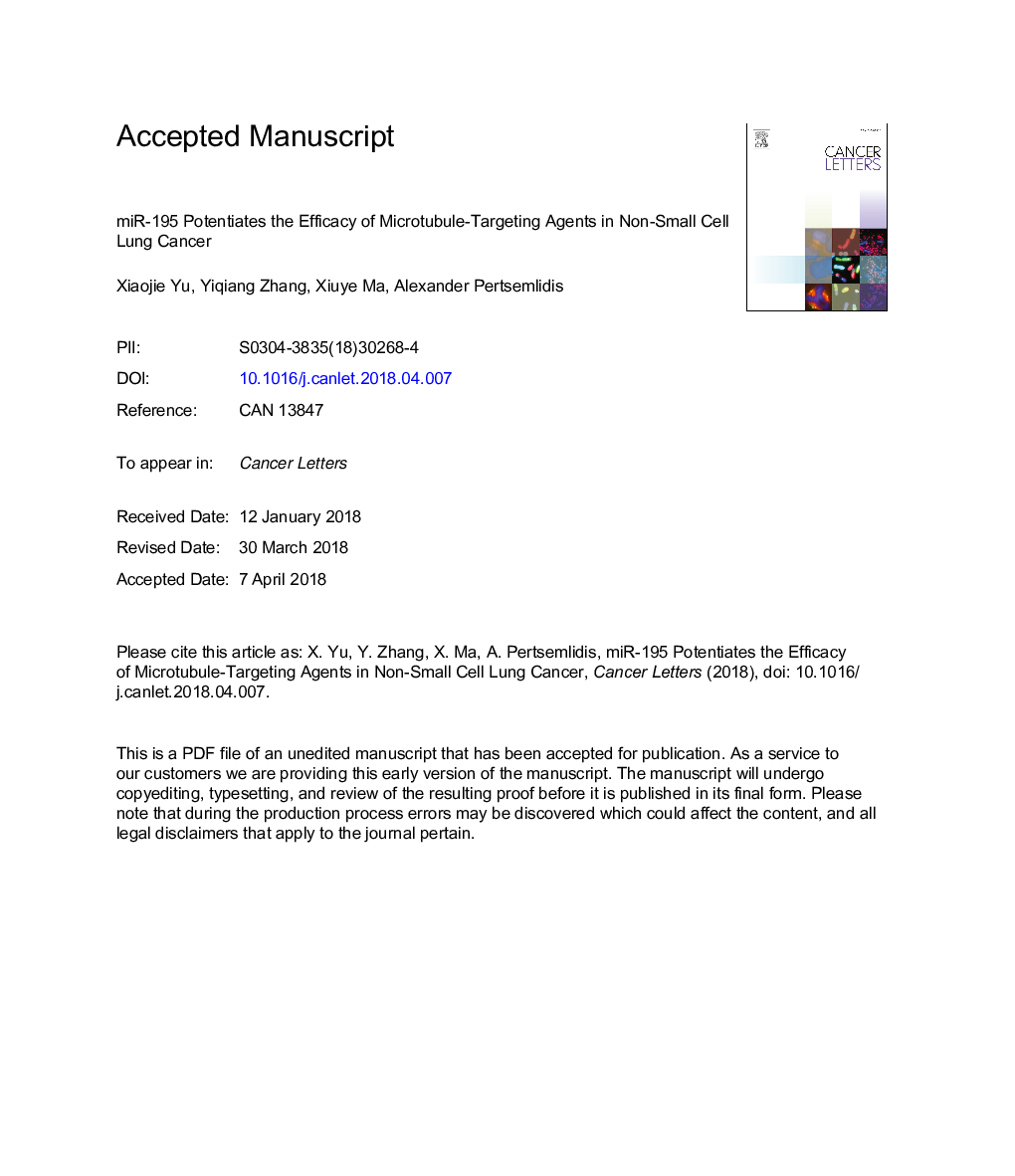| Article ID | Journal | Published Year | Pages | File Type |
|---|---|---|---|---|
| 8434373 | Cancer Letters | 2018 | 28 Pages |
Abstract
Microtubule-targeting agents (MTAs) are widely used for the treatment of non-small cell lung cancer (NSCLC). The response rate is only â¼25%, mainly attributable to drug resistance. To identify determinants of resistance in NSCLC, we performed a high-throughput screen using a library of miRNA mimics. Here we report that miR-195 synergizes with MTAs to inhibit the growth of NSCLC cells in vitro, that increased expression of miR-195 sensitizes NSCLC cells to MTAs and that repression of miR-195 confers resistance to MTAs. We show that NSCLC tumors over-expressing miR-195 are more sensitive to MTA treatment and that induced expression of miR-195 in NSCLC tumors potentiates the anti-tumor effect of MTAs. Additionally, we demonstrate that miR-195 targets checkpoint kinase 1 (CHEK1) to regulate the response of NSCLC cells to MTAs, that over-expression of CHEK1 contributes to resistance to MTAs and that knock-down of CHEK1 synergizes with MTAs to repress cell growth. Our results highlight the importance of miR-195 in regulating the response of NSCLC cells to MTAs and underline the potential application of miR-195 as a biomarker for response to MTAs, and as a therapeutic adjuvant to MTA treatment.
Related Topics
Life Sciences
Biochemistry, Genetics and Molecular Biology
Cancer Research
Authors
Xiaojie Yu, Yiqiang Zhang, Xiuye Ma, Alexander Pertsemlidis,
